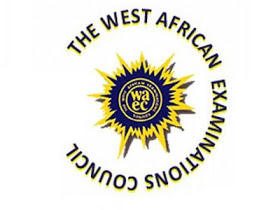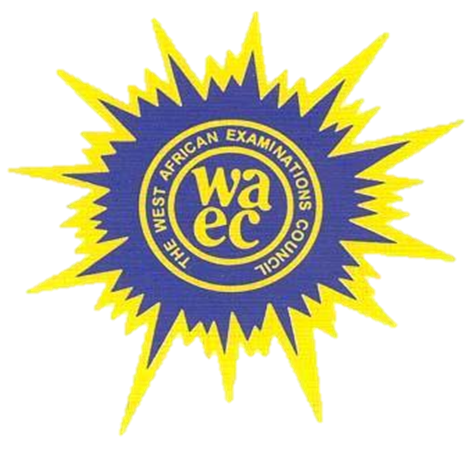NECO 2022 Civic Education Obj And Essay Answer – July/Aug Expo
WELCOME TO AYOSTUFFS BEST EXAM EVER
==================================
KEEP REFRESH THIS PAGE IN EVERY 5MIN
==================================
2022 NECO CIVIC ANSWERS
***************************************
***************************************
Obj
01-10: EADEBDBDCB
11-20: EAADACCCCC
21-30: DCACDBBEDA
31-40: BDCEDDBBDA
41-50: ACCDEBBBBD
51-60: BECBCCBBCD
Completed
***************************************
THEORY ANSWERS
INSTRUCTIONS:- Answer four(4) questions in all , two (2) questions from each section
***************************************
***************************************
(1)
(i)Decorum: Decorum is simply the to as requirement of correct behavior in polite society. It is the right behavior expected at a particular situation..Example is perfect silence among the students when the principal is speaking.
(ii)Obeying traffic rules and regulation: It is important for every road users to obey the traffic rules and regulation while driving and there is need for proper understanding proper understanding of the traffic rules and regulation.
(iii)Queuing culture: Queuing is an important way to maintain orderliness in the society. There may be need for us to queue up at some places where many people want to enjoy same services with us. This will help in letting things go in a well orderly manner. Examples of where queuing may be needed are petrol stations, ATM points, banks etc.
(iv)Listening skills: Good listening skills help us to avoid misunderstanding, embarrassment and mistakes. there is need to be attentive to ever information. Orderliness involves paying attention while others speak.
(v)Driving skills: Driving skills is needed before driving, it is important to go through the normal driving school process before prescribed by the authority concerned before making any attempt to drive.We demonstrate orderliness in driving by observing the traffic light and traffic regulations.
***************************************
***************************************
(2)
(i) Love: An interpersonal relationship characterized by passion, intimacy, trust and respect is called love. Individuals in a romantic relationship are deeply attached to each other and share a special bond.
(ii) Friendship: Friendship is an unconditional interpersonal relationship where individuals enter into by their own sweet will and choice. Friendship is a relationship where there are no formalities and individuals enjoy each other’s presence.
(iii) Platonic Relationship: A relationship between two individuals without any feelings or sexual desire for each other is called a platonic relationship. In such a relationship, a man and a woman are just friends and do not mix love with friendship.
(iv) Platonic relationships might end in romantic relationship with both the partners developing mutual love and falling for each other. Family Relationship Individuals related by blood or marriage are said to form a family.
(v) Professional Relationship (Work Relationship): Individuals working together for the same organization are said to share a professional relationship. Individuals sharing a professional relationship are called colleagues. Colleagues may or may not like each other.
***************************************
***************************************
(3)
(i) Refresher of courses and training
programmes: The introduction of fresher
courses and training programmes home
and abroad for public servants on the
various skills they need to improve their
jobs and Nigeria.
(ii) Teaching political education in schools :
The introduction of political education into
the school curriculum like the learning of
civic education, government, diplomacy
and other political thoughts to all levels of
education.
(iii) Use of code of conduct bureau and public
complaints commission : Government
should establish some disciplinary codes of
conduct which will watch the affairs of
public servants.
(iv) Use of technology through Participatory budgeting. Addressing policy
challenges. Checking schools and toilets.
Transforming relationship between citizens
and public services. Providing feedback in
real time.
(v) Do open conversations with individuals or citizens of the country to note their challenges in their daily lives.
***************************************
***************************************
(5a)
Civic duty refers to the patriotic and ethical responsibility of all citizens to take an active role in society and to consider the interests and concerns of other individuals in the community.
(5b)
(i) Payment of taxes:
An important duty of any citizen in any country is to pay taxes to the state. Tax is a compulsory contribution to state revenue, levied by the government on workers’ income and business profits, or added to the cost of some goods, services, and transactions used in the development of a country.
(ii) Obeying the laws of the state:
Law and order are prerequisites of every society. To ensure that there is law and order, therefore, every citizen must obey the laws of the land. Citizens are expected to respect and obey federal, state, and local laws.
(iii) Participating in the political process:
Citizens are expected to participate in the political process of the state. The citizen is expected to vote and can also be voted for if he or she vies for a political office. Citizens are expected to be active in the democratic process.
(iv) Protection of public property:
Every citizen has the responsibility to protect state property. A lot of tax money is spent by governments to create public properties for the state. As such, it is expected of citizens to take care of these properties.
***************************************
***************************************
(6)
[img]https://i.imgur.com/CcUc8K8.jpg[/img]
[img]https://i.imgur.com/7Asfkx1.jpg[/img]
***************************************
***************************************
(7a)
[img]https://i.imgur.com/kO24zqv.jpg[/img]
(7b)
[img]https://i.imgur.com/4yWgv5p.jpg[/img]
***************************************
***************************************
(8)
FUNCTIONS OF EXECUTIVE
[Pick Any five]
(i) protects the country against external attack
(ii) execute and implement the law
(iii) prepares annual budget
(iv) Enforce law in the state
(v) Appointment of ministers, high commissioners and ambassadors
(vi) signing of bill into law.
FUNCTIONS OF LEGISLATURE
[Pick Any five]
(i) It makes law
(ii) it approves budget
(iii) Executive watchdog
(iv) It approves judiciary appointment
(v) it represents the citizens in government.
(vi) it approves executive appointments.
FUNCTIONS OF JUDICIARY
[Pick Any five]
(i) it interpreters the law
(ii) it settles disputes
(iii) it punishes offenders
(iv) It contributes to law making
(v) it safeguards fundamental individual right.
(vi) it functions as watch dog to other organs of government.
***************************************
***************************************
Completed..!!
AYOSTUFFS




Comments
Post a Comment